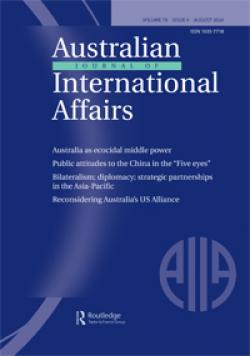Out of sight, out of mind? The bipartisan Australian foreign policy on irregular migration

Australian foreign policy traditionally claims middle power and good international citizenship credentials, although it also resorts to unilateral actions due to its deep-rooted condition of ‘frightened country’. This article argues that the country's irregular migration governance embodies this tension, and thus seeks to shed light on this increasingly-neglected aspect of Australian external engagement. Following a theoretical understanding of Australian foreign policy, it investigates the country's irregular migration policies between 2000 and 2024. The article finds that there is a strong continuity in such policies irrespective of the type of government in power, supported by foreign policy bipartisanship, resulting in specific foreign policy tools to stem seaborne arrivals. These include military missions; territorial excisions from the migration zone; offshore processing and/or externalisation agreements with Nauru, Papua New Guinea, Cambodia, and Sri Lanka; pushback manoeuvres, and at-sea processing of asylum claims. Inevitably, such measures complicate Australia's international status as they emphasise the uneasy coexistence of both the globalist middle power and the self-interested nation images in its foreign policy, therefore warranting new research on this under-examined condition.
-
Dati bibliografici
in Australian Journal of International Affairs, 9 September 2024 -
ISBN/ISSN/DOI:
10.1080/10357718.2024.2398748



